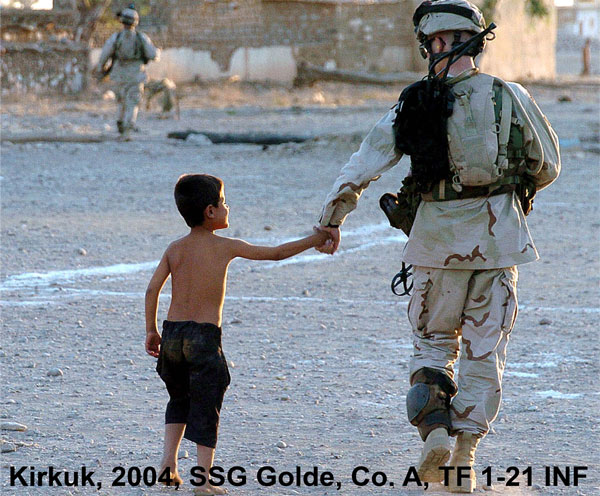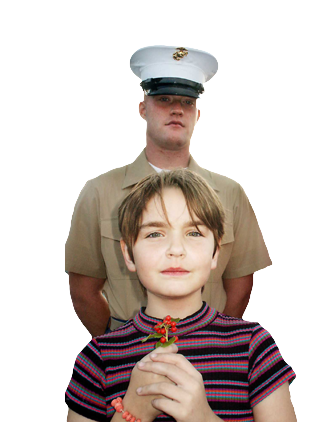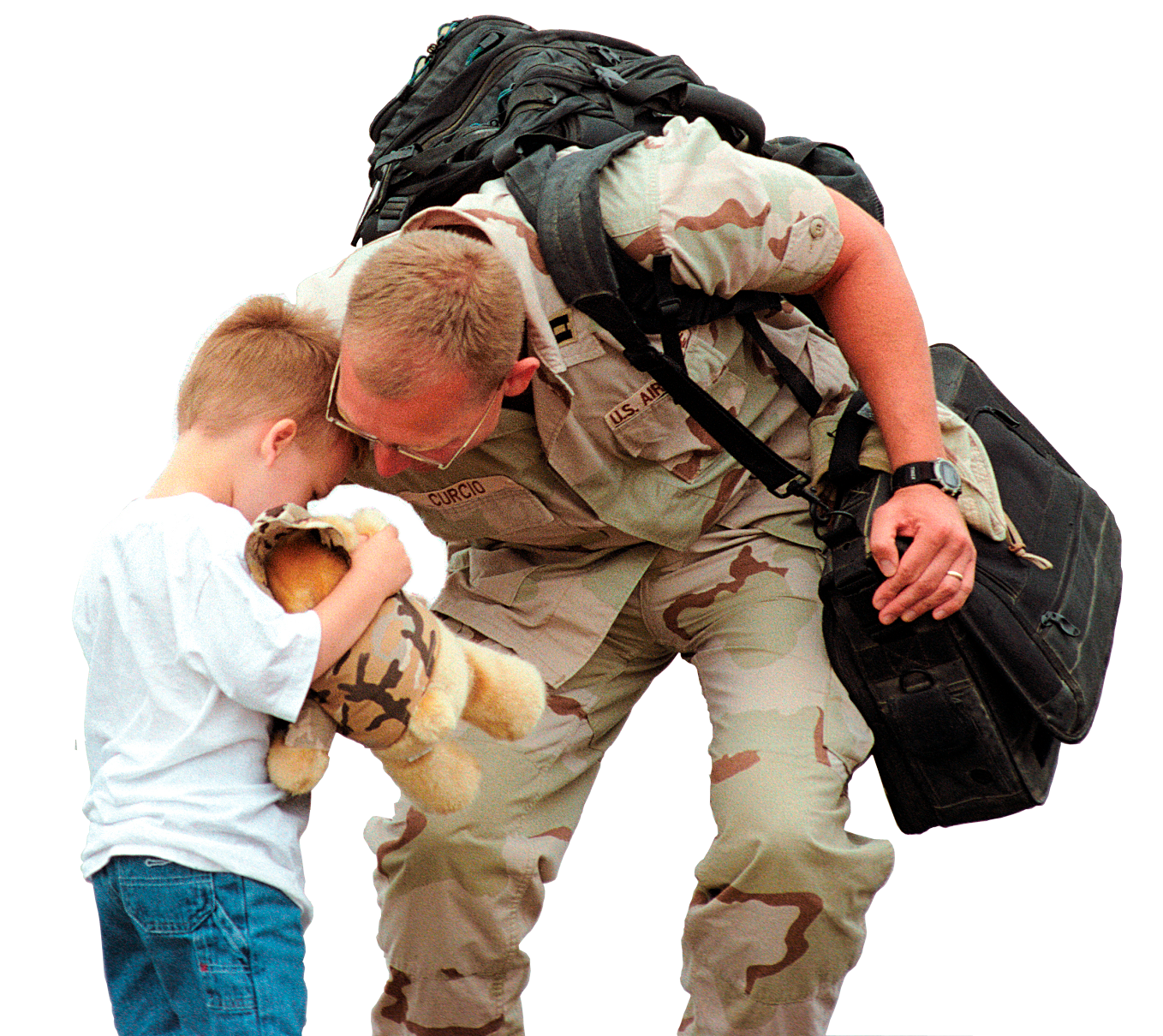
The Valiant and the Vile: Memorial Day 2022
U.S., Memorial Day 2002 - This Memorial Day, the vile behavior of Russian soldiers in Ukraine provides a stark lesson in contrast to the valiant nature of the American soldier.
On this somber holiday, Americans honor those who died during military service to our great nation and thank them for keeping America free. Since the time General George Washington and the Continental Army secured our freedom from England, countless American soldiers have sacrificed their lives so we may live in a democratic society. Every day, our neighbors voluntarily enlist is our military, willingly risking their lives to protect our individual freedoms.
This Memorial Day, we at SupportOurTroops.Org encourage everyone to remember and honor those who died defending our country and the brave servicemembers protecting us today.
Different cultures produce different warriors. When America must fight, our soldiers conduct themselves honorably, despite the hell that is war. It is in our character to show compassion to the sick or wounded and to always treat even our adversaries humanely.
The images from Ukraine offer a disturbing comparison between the vile and the virtuous.
The Barbarism of Russia’s Soldiers in Ukraine
Every day we see graphic images of Russian soldiers willingly committing widespread murder in Ukraine, killing women, children, noncombatants, prisoners, while bombing occupied schools and hospitals. Russia’s strategy is to crush cities, kill or lay siege to its inhabitants and then repopulate the land with their own.
Now we see brave Ukrainian soldiers, sad but defiant, loaded onto busses while surrendering to Russian forces after a bloody, months-long siege of Mariupol that left many grievously wounded and traumatized.
The Russians say they have 1,730 Ukrainian soldiers in custody. Given their barbaric behavior the world asks: “How will these courageous Ukrainian soldiers be treated by their captors?”
I am SSG (Ret) Jim Spearing, and I work with civilians in SupportOurTroops.Org serving the needs of todays deployed soldiers. Back in the day, I volunteered to serve in Operation Desert Shield/Storm with the 418 Military Police Enemy Prisoner of War Liaison Team.
The headlines about Russia in Ukraine bring me back to our first day receiving Enemy Prisoners of War (EPW) during Operation Desert Storm in 1991. I was part of a liaison team to the Saudi Army to ensure fair treatment of enemy prisoners in American custody. In the end, we imprisoned and safeguarded over 55,000 Iraqis and did so with dignity and compassion in the most trying of circumstances.
I remember my first impression was “They (the EPW) keep coming, around the clock, by the thousands. They were filthy, bedraggled, emaciated, their tattered uniforms falling from their skinny bodies.”
Abandoned by their leaders, these young conscripts were left to die in the desert, any chance of retreat booby trapped by their own officers and made to endure relentless allied bombing. Reduced to skeletons from lack of food, these shell shocked and defeated soldiers had little fight left in them.
As the NCO in charge that day, my job was to supervise the care and management of enemy prisoners as they entered U.S. confinement and afterward to monitor their treatment until they were sent home.
The first task was to collect their basic information on “blue cards” registering them with the International Committee of the Red Crescent (ICRC) which provides humanitarian protections and assistance for victims of war. As we passed out cards to the first group of prisoners, we could feel the anxiety in the air. Something was wrong. One prisoner began to shake uncontrollably, falling to the ground screaming. Another dropped to his knees, throwing up and convulsing. The entire group seemed ready to bolt.
Suspecting a chemical or biological attack, I summoned our interpreters to find out what was happening who reported:
“Sir, they are just terrified.”
“Why,” I asked.
Evidently, Saddam Hussein had convinced his soldiers that the Americans would ask them to write down their names on “blue cards” before they would be summarily executed. I remember thinking:
“How could they fall for that, after all, we are Americans.”
I told the interpreter to set them straight while I marched a newly processed batch of prisoners, showered and sporting the now familiar orange jump suits, past our frightened EPWs to assure them that no mass killings were taking place and to demonstrate that American soldiers treat their captives humanely and will extend to them the fair treatment to which all warriors are entitled.
Can you imagine the level of terror it takes to cause a full-grown man, a soldier, to break down like that?
You’d have to have a hard heart not to feel sorry for these poor devils.
WWII Caused the 1949 Geneva Conventions To Protect Noncombatants
The ghastly atrocities in World War II prompted the world to establish the “rules of war” collectively known as the Geneva Conventions of 1949 (and subsequent additional protocols) providing protections for civilians from the hazards of armed conflict.
These protocols require nations to distinguish between civilians and combatants and they forbid the deliberate targeting of civilians. The Conventions also require nations to treat detainees humanely, providing medical care for the sick and wounded without discrimination, and to protect them from harm.
Russia is a signatory to the Geneva Conventions and has a responsibility to adhere to the rules. Tellingly, on October 17, 2019, Russian President Vladimir Putin revoked Russia’s agreement with Additional Protocol #1 of the Geneva Conventions regarding protection of civilians after receiving criticism over Russian military actions in Syria. Regardless, at a minimum, here is what captured Ukrainian soldiers are entitled to, and it serves as a useful guide for readers to compare to their actual treatment by the Russians:
Noncombatants may never be a deliberate target, and parties to the conflict must make every effort to minimize harm to civilians and civilian objects. During armed conflict, both parties must discriminate between civilian and “legitimate” military targets and take every precaution to prevent undue harm to the civilian population. Indiscriminate attacks, not directed at a military target, are strictly forbidden and may constitute a war crime.
No prisoner of war may be punished for the simple act of participating in the war. The Geneva Conventions clearly define a “combatant” as members of a national armed force or organized group who take a direct part in hostilities. Clearly, today’s Ukrainian soldiers captured at the siege of Mariupol qualify as “combatants” under the Geneva Conventions and are entitled to its protections. As enemy prisoners, the Ukrainian captives must be treated “humanely” by the Russians and are allowed certain considerations.
The capturing army, here the Russian Army, must identify its prisoners to the proper authorities and notify the family, when possible, of the status of each EPW.
The enemy combatants must not suffer inhuman or degrading treatment at the hands of their captors. Their dignity, as soldiers, must be maintained.
When we were at war in Iraq we did everything humanly possible to protect civilians, noncombatants, women, and children. We did this because it was the right thing to do, the moral way professional soldiers should conduct themselves. It’s in our nature.
After all, America was the driving force in creating the Geneva Conventions in 1949 and has tried to set the example for honorable conduct during wars since. Our soldiers are taught, from day one, to respect the dignity of those in their custody and to protect, not attack, innocent civilians.
In the Gulf War, the United States accounted for every prisoner, from capture until they were shipped home, we granted access to the International Committee of the Red Cross, and we notified the Iraqi government.
At the time, the Iraqi media were parading downed allied pilots, who had obviously been beaten and tortured, via television around the world. Many soldiers were furious and demanded to know why we should treat their prisoners so gingerly while the Iraqi’s abused our people.
My answer was always the same:
Because we are Americans.
Just because an adversary chooses to act like an animal does not mean American soldiers in turn abandon the morality and violate long established human rights. Americans are raised in a free society that respects human dignity and goes by a moral code to protect and defend the innocent. Our philosophy is “Treat enemy soldiers as you would want to be treated” regardless of the behavior of the other side. This even includes showing respect for their cultural and religious beliefs. In Desert Storm, for example, we gave each prisoner an Islamic prayer rug with a compass so they could orientate their mats towards Mecca. Later, we allowed prisoners to prepare their ethnic meals under American supervision.
Part of our mission as an EPW Liaison team was to visit prison compounds, unannounced, to monitor the treatment of EPW by U.S. military personnel. Anyone, and I mean anyone, caught abusing a prisoner was immediately detained and the incident investigated. Command made it clear that any violations of Geneva Conventions would not be tolerated.
Thankfully, there were few incidents that required our intervention.
Moral & Practical Reasons to Comply
As I see it, there are two very good arguments why all nations should want to comply with the Geneva Conventions.
First, there is the moral argument, that humans can make ethical choices, their sense of compassion and fairness leading them to not cause unnecessary harm to others. In war, we try to protect women and children, safeguard the elderly, and always strive to conduct ourselves as a moral, honorable people.
Because we are Americans.
Second, there is the practical argument that barbarism simply doesn’t pay. There was an old saying bouncing around the military at the time, “Do not commit an atrocity upon your enemy as it only serves to enrage him.” Much military doctrine is devoted to demoralizing one’s adversary, making them question their mission, sap their will to fight.
Under this theory, the last thing you want to do is commit some horrendous act that so infuriates your enemy he comes back swinging. The promise of fair treatment if captured is a major incentive for a demoralized enemy to quit.
What will happen to those valiant Ukrainian warriors at the hands of the vile Russian Army? Will the Russians continue their barbarism? Now that the world is watching, I doubt the Russians would dare execute these prisoners. I suspect they will be exploited for propaganda purposes and then exchanged for Ukrainian prisoners.
I hope they get home soon.
So, as we honor our fallen heroes this Memorial Day 2022, it is instructive to compare the dreadful conduct of Russia‘s soldiers in Ukraine to the righteous nature of America’s soldiers. The U.S. is committed to the Geneva Conventions and our military does its level best to adhere to them. Russia has abandoned any pretense of following the rules by deliberately shelling Ukrainian villages out of existence.
American troops see more combat than any other military in the world and have done an excellent job obeying the laws of war. America’s commitment to the Geneva Conventions is one reason for units like mine -- the 418th was totally dedicated to the just treatment of prisoners.
When on the rare occasion some troops do cross the line, America ferrets out the truth, redresses the wrong, and strives to ensure it doesn’t happen again. Our culture is historically steeped in the tradition of protecting life and helping those in need. As children, we are taught to pursue goodness, to be virtuous and to never cause unnecessary harm to others.
America’s military reflects our nation and her values. This Memorial Day, we have reason to be proud of both.
By Jim Spearing of SupportOurTroops.Org
Support Our Troops, Inc provides morale and well-being shipments and services to active-duty soldiers worldwide.
This article is offered freely for use as guest commentary or an article without compensation. Permission is granted to reprint it in whole or part, provided its meaning is not altered and proper attribution to SupportOurTroops.Org is made. SupportOurTroops.Org warrants this is original internal content and the imagery associated with comes with the right to use and republish same without compensation.
A 600px wide web-image is here
A high res image is here






